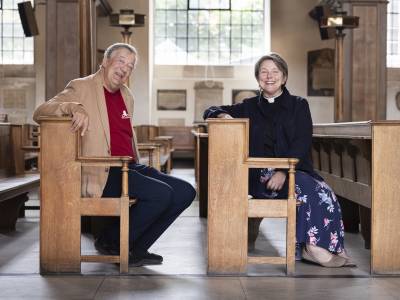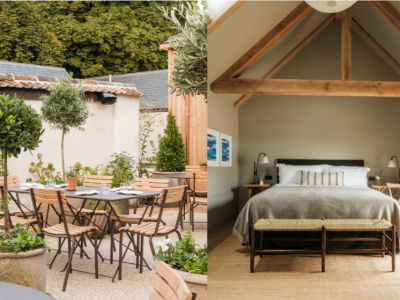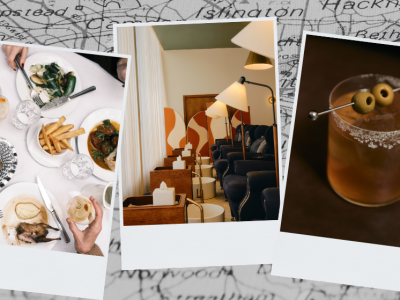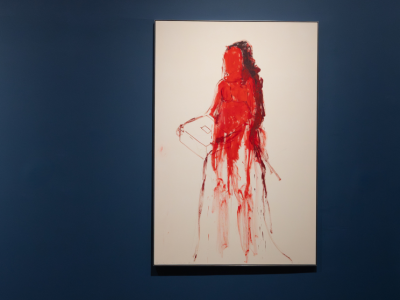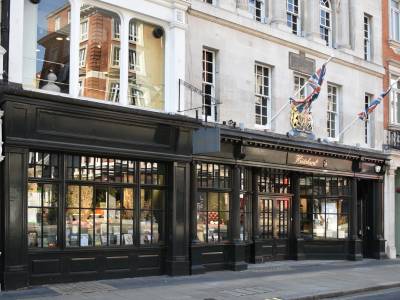Stephen Fry Takes a Pew with Lucy Winkett at St James's Church Piccadilly
18th September 2025
Stephen Fry, actor, writer and broadcaster, takes a pew in his parish church with Lucy Winkett, Rector of St James’s Church Piccadilly. Interview by Lisa Barnard.
Lucy Winkett: It's a sacred space like any church, but it's public. So, it doesn't belong to Christians, not to me as the rector, or anybody who is signed up to any set of doctrines. It is a beautiful, inclusive space created for the worship of God, where the thresholds are low and there are many entry points. Because it's built by Christopher Wren, it has a statement. Our windows are clear, and we don't have little hidey holes, where as a priest I can go off and mutter to God in a language that no one understands. It’s an egalitarian principle for religion to be open to people of all faiths and none. This morning I was at the altar, where we pray daily for every soul in the parish, without exception. Whether they like it or not, we pray for them.
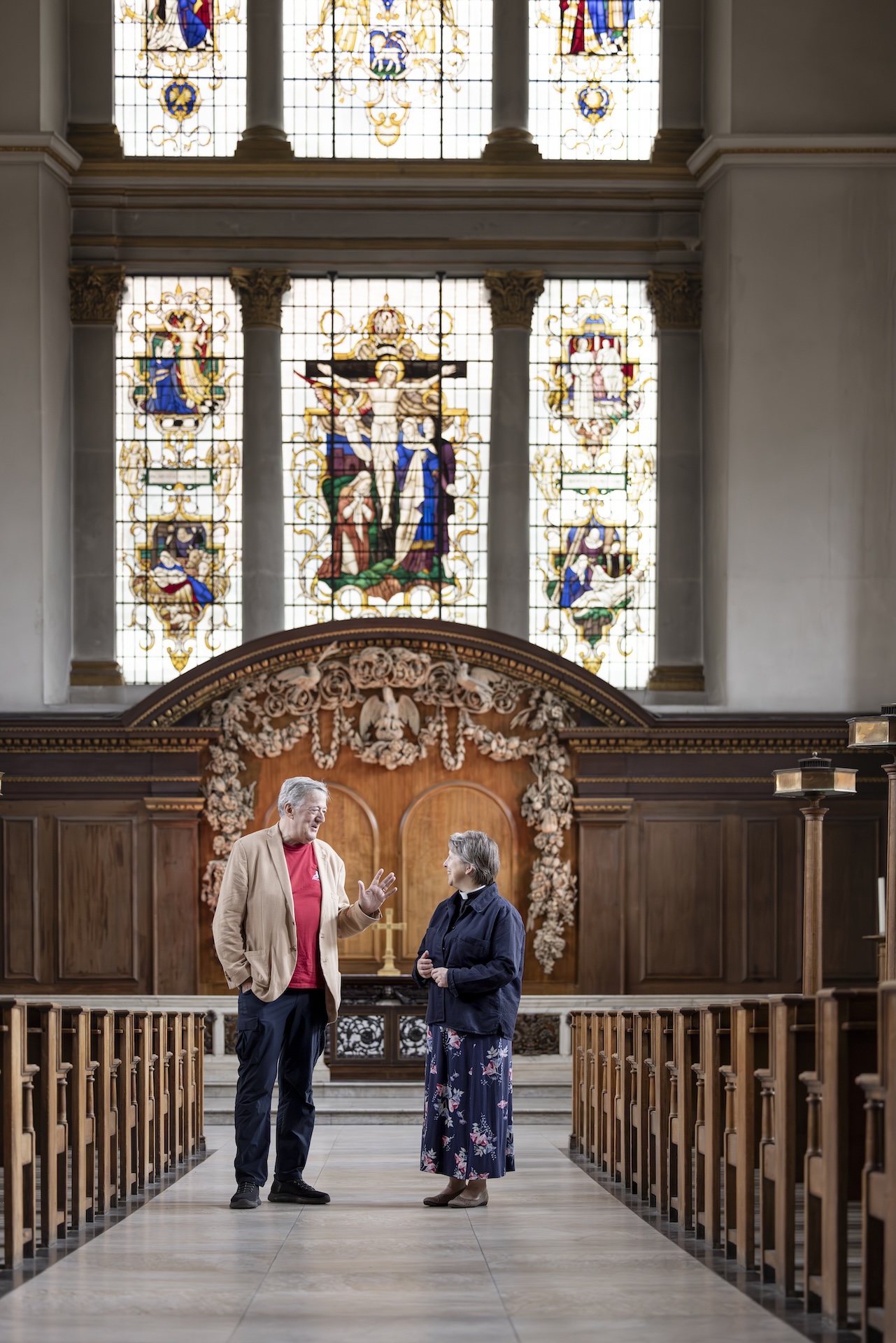
Stephen, what is special about St James’s for you?
Stephen Fry: There's the church itself, a simply wonderful example of Christopher Wren's genius. There's the area. You think of St James’s as tweed jackets and silk ties, gentlemen's barbers and gentlemen's clubs. But opposite St. James’s is Soho, and it's in the DNA of the parish that, as a community and as a church, it has a progressive history that goes a long way back. St. James's Church is very, very different. It's not a society church, it's beautiful and well looked after. Its tradition of music is as fine as any, but it has this extra quality that it is open for the homeless, and for people like me—the godless. It's an extraordinary parish, unique in London. With show business across the road, it has great connections, and for those of us who are lucky enough to live in the area, it's a wonderful thing.
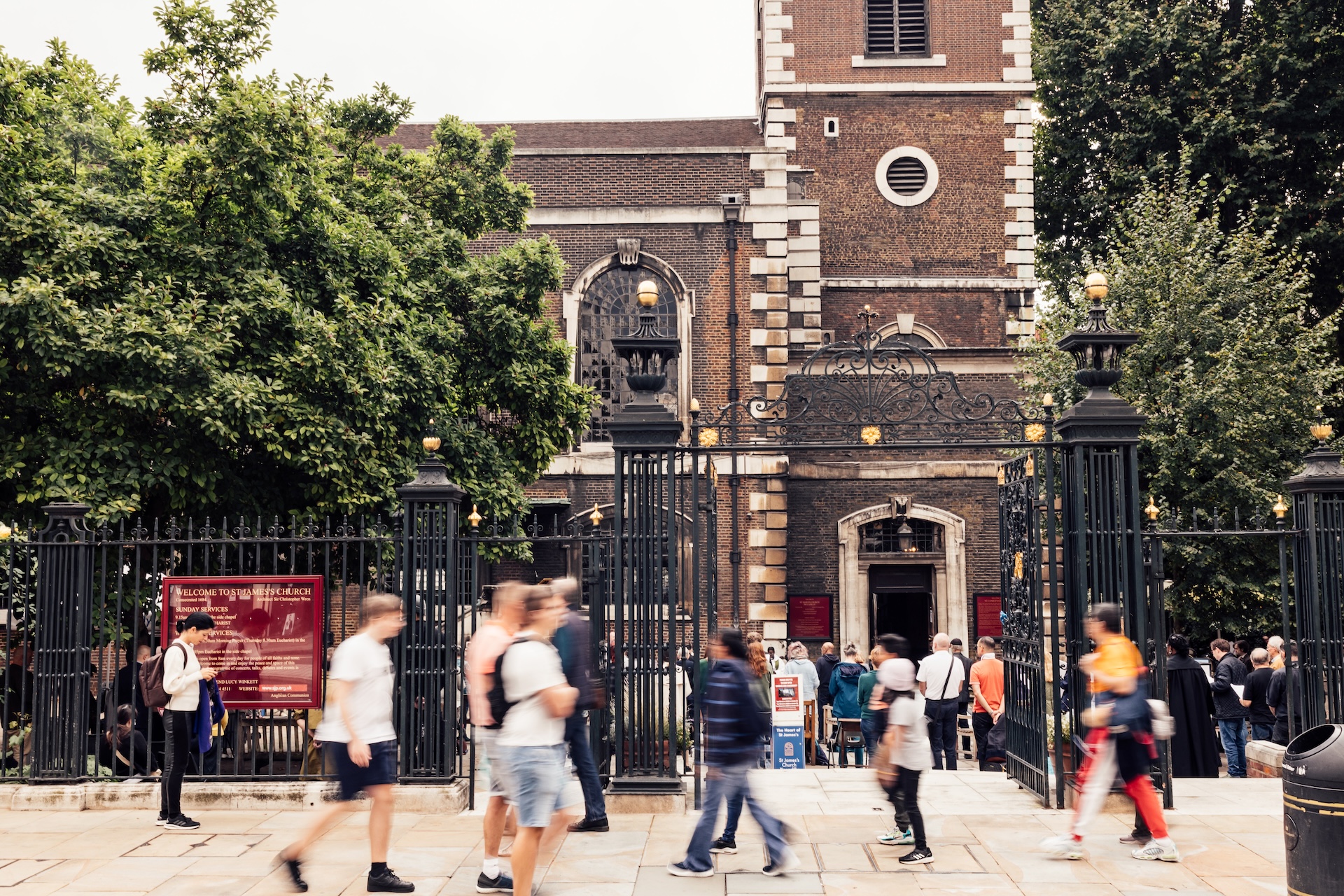
What has been your involvement with St James’s?
SF: There are regular things like the St. James's Fayre, which is a magnificent yearly Christmas charity concert, with talented musicians and actors giving recitations, singing and instrumental readings. It raises money for The Felix Project and for other local charities. There's fabulous work going on, and the south side is newly revealed. It's rather wonderful to see the full effects of the stonemasons bringing it back to its best. I've been to weddings, funerals and memorial services there. My dear friend, Leslie Bricusse, the composer, had his memorial service there. Michael Caine was there, and we were reflecting that St. James's is ‘the ecclesiastical version of Tramp’!
LW: We did the memorial service for the owner of Tramp.
SF: Johnny Gold, of course.
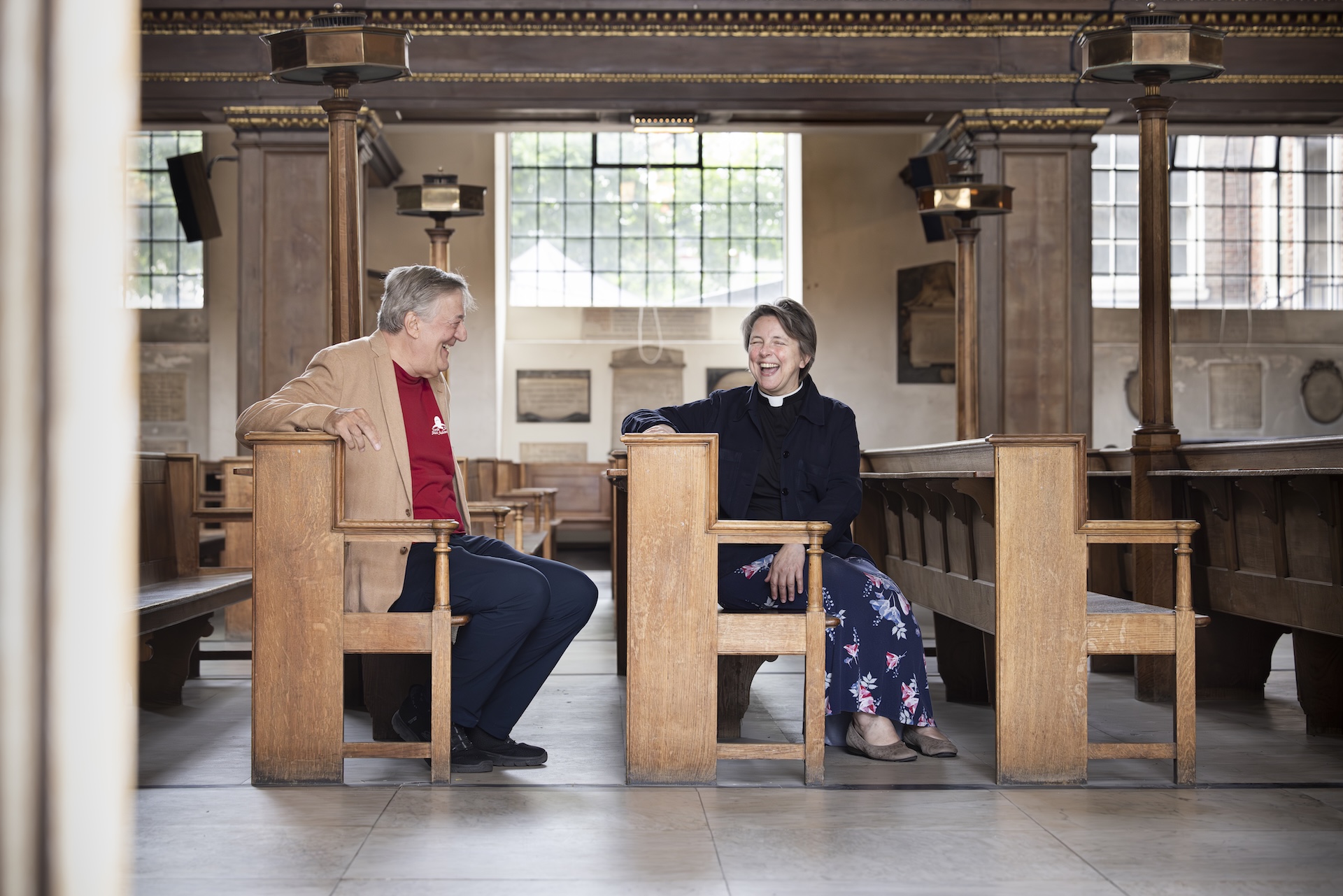
So Lucy, what has been your involvement with St. James’s?
LW: I was appointed as Rector in 2010. The then Bishop of London, Richard Charters, said to me: ‘Don't forget that William Blake was baptised there. There’s a Blakean spirit around the place and around the parish.’ I took that as a huge positive; that there can be quite an anarchic, antinomian, tigerish spirit.
SF: You have the Vagabonds?
LW: Yes, we had the Vagabonds for years. ‘Vagabonds’ was a discussion group that used to meet in the pub. William Blake said the alehouse was the place to discuss these things rather than the church. We like to joke that Blake's baptism was both his entry and exit from The Church of England. He never knocked on the door again, so we can't claim him as a congregant, but we can claim him as a parishioner. I think that placing human imagination at the service of something greater, which I would want to say is God, is an extraordinarily powerful combination. Human imagination meets divine imagination.
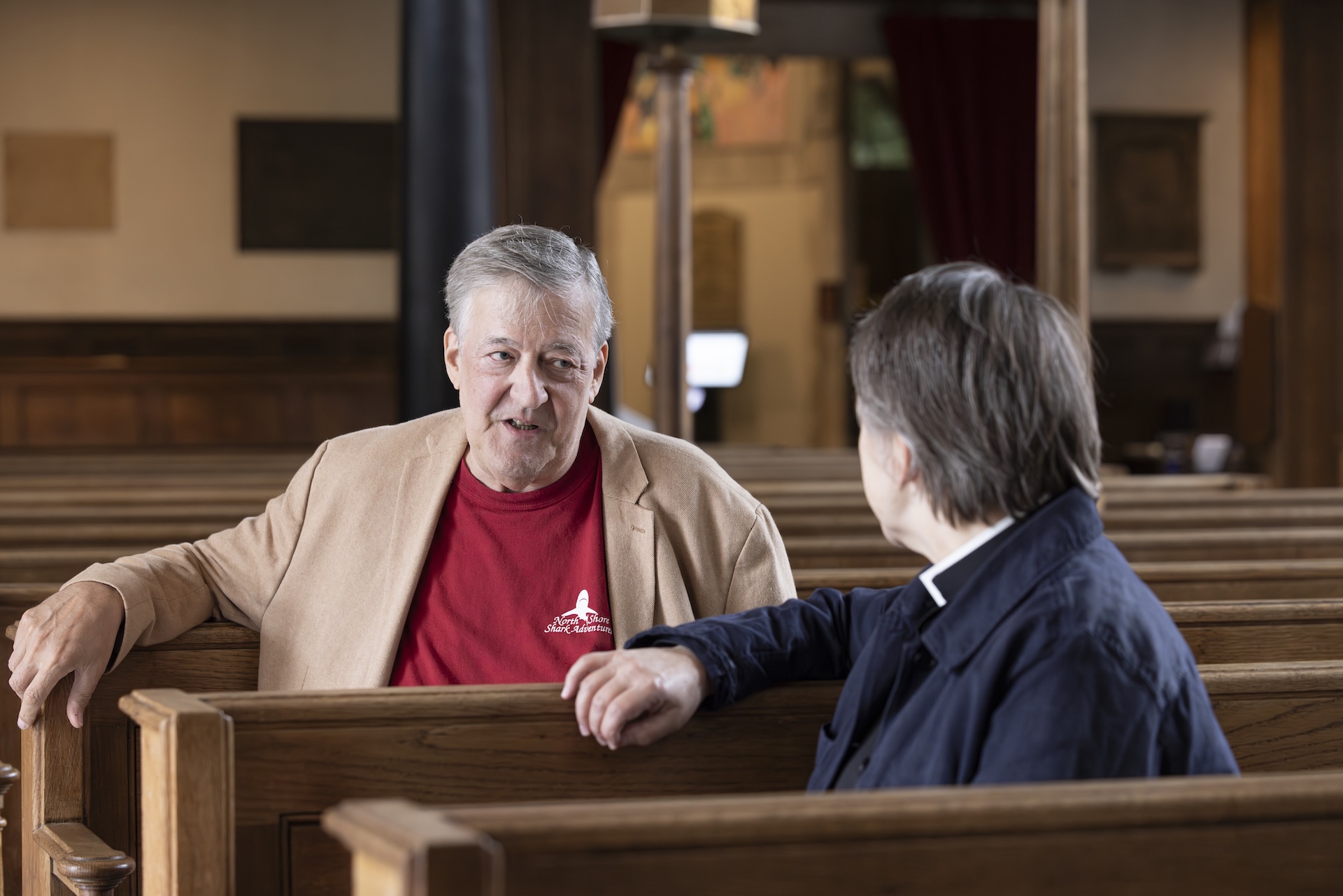
Stephen, you mentioned earlier being godless, and you are famously an atheist. Why are you here?
SF: I've just finished the fourth of a series of books about the Olympian Gods of Greek mythology, in whom I secretly don't believe, in the sense that I don't think Zeus lived on Olympus and controlled the weather. But I do believe in the idea of Zeus and the idea of the Olympic gods. I've mistakenly been bracketed with some of the fiercer atheists, who've risen to prominence. Although many of them are or are my friends: Christopher Hitchens was a dear friend, I know Richard Dawkins well and Sam Harris – the so-called ‘godless horsemen’.
But unlike them, I have a real affection, particularly for The Church of England. It stems from the mixture of the liturgy, my admiration of the prose style of Thomas Cranmer. I think The Book of Common Prayer is one of the great ornaments of English literature, as is the King James Bible. I also absolutely love the music of The Church of England: the great Victorians like John Stainer, all the way back to Byrd and Tallis, and right through to Howells, Ireland and Stanford.
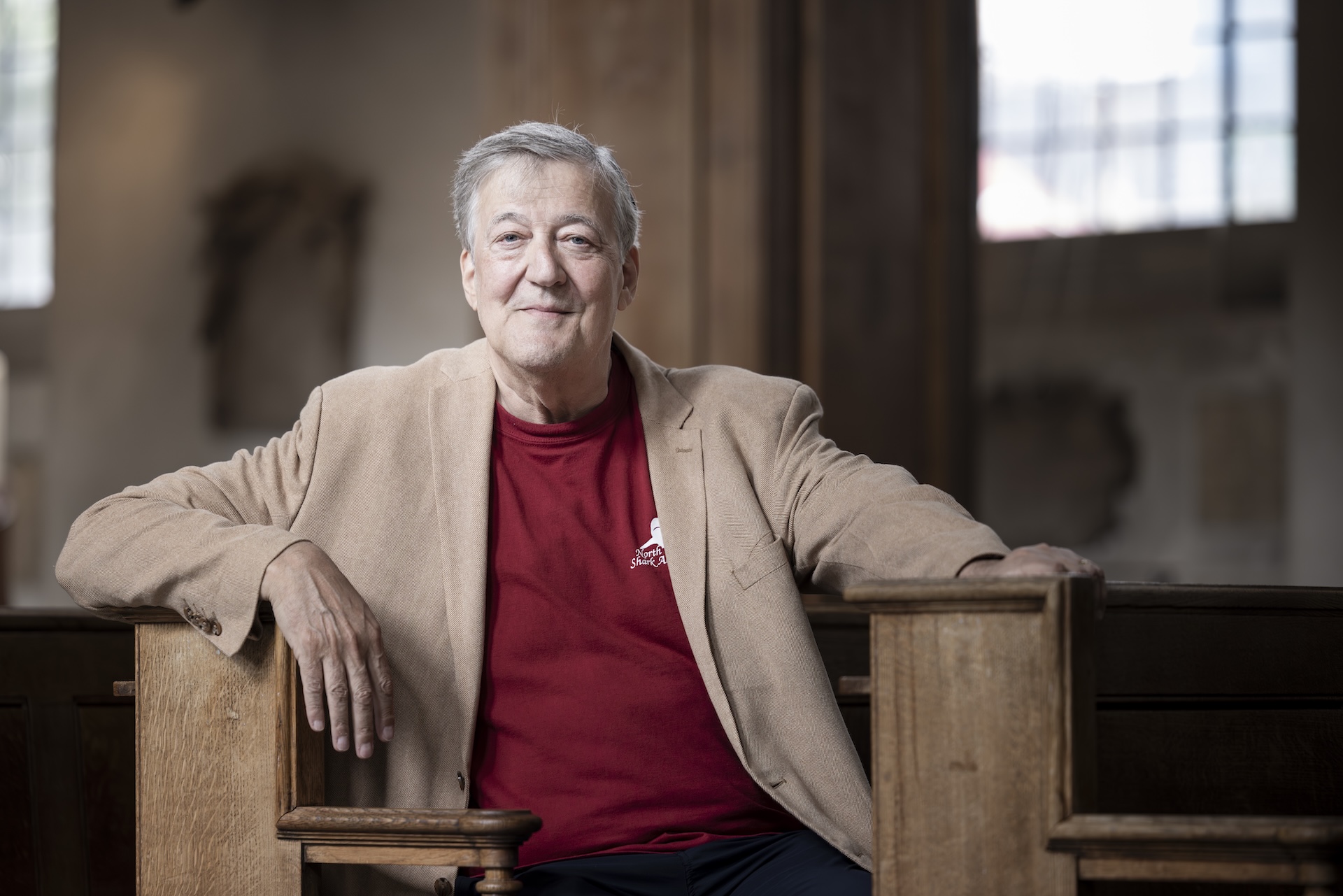
I like the architecture, the language and the Eucharist itself in the Catholic/Anglo-Catholic tradition. I don't mean high smells and bells. I’ll be extremely honest - spiritually and intellectually - and say I don't actually believe in the full range of things that would allow me to cross over. Otherwise, I'd love to be a Bishop!
LW: You'd be a great Bishop!
SF: And you, Lucy, would make a magnificent Archbishop of Canterbury! Before I knew you were coming to St. James's, I knew you were the first woman Canon at St Paul’s Cathedral and a Precentor. I remember back in the early part of this century, the vituperative things that were thrown at you by Christians – not just Christians, but ordained Christians. The priesthood was absolutely monstrous about you. It was extraordinary, the resilience and grace that you showed; two of the best human qualities. You had them in abundance, and though you’d need them, you probably wouldn’t want to be put forward for Canterbury - but the Church needs someone like you.
LW: It was 1998 when I went to St. Paul’s, and it was hard for about five or six years. Then we turned a bit of a corner. I had another job, then I became a Canon, with some more authority. I immediately started to employ more women, and we became a few rather than just one. That made a massive difference. It was hard being the face of the change.
Is it still challenging today?
LW: Very much so, although it’s much better. Recently, I celebrated the 30th anniversary of my ordination. It’s important to note these moments. I absolutely love what I do. It’s immensely challenging, but I couldn’t imagine not being a priest. I have to say, to Stephen’s point, that in some ways I think that misogyny has been mainstreamed. It’s the ‘boys will be boys’ mentality.
Is that within the Church as well as within society?
LW: In The Church of England, it manifests itself in different ways. One of the things we’ve been working on is trying to challenge the movement of some of the conservative evangelicals in the Church. There are big churches that are very popular, particularly with young people, who are banding together and withdrawing their money from the mainstream Church to set up their own alliance, based on their opposition to same-sex relationships and the leadership of women. It's a retrospective regret about the fact that women have become leaders in the Church, together with an opposition to same-sex relationships. I preached a sermon on this last summer, because I thought we had to say something about this.
SF: I think that’s beautifully put.
LW: I engage with these internal conversations because I think it’s important, but that’s not where my energy wants to go. We are very good in the Church at answering questions no one is asking.
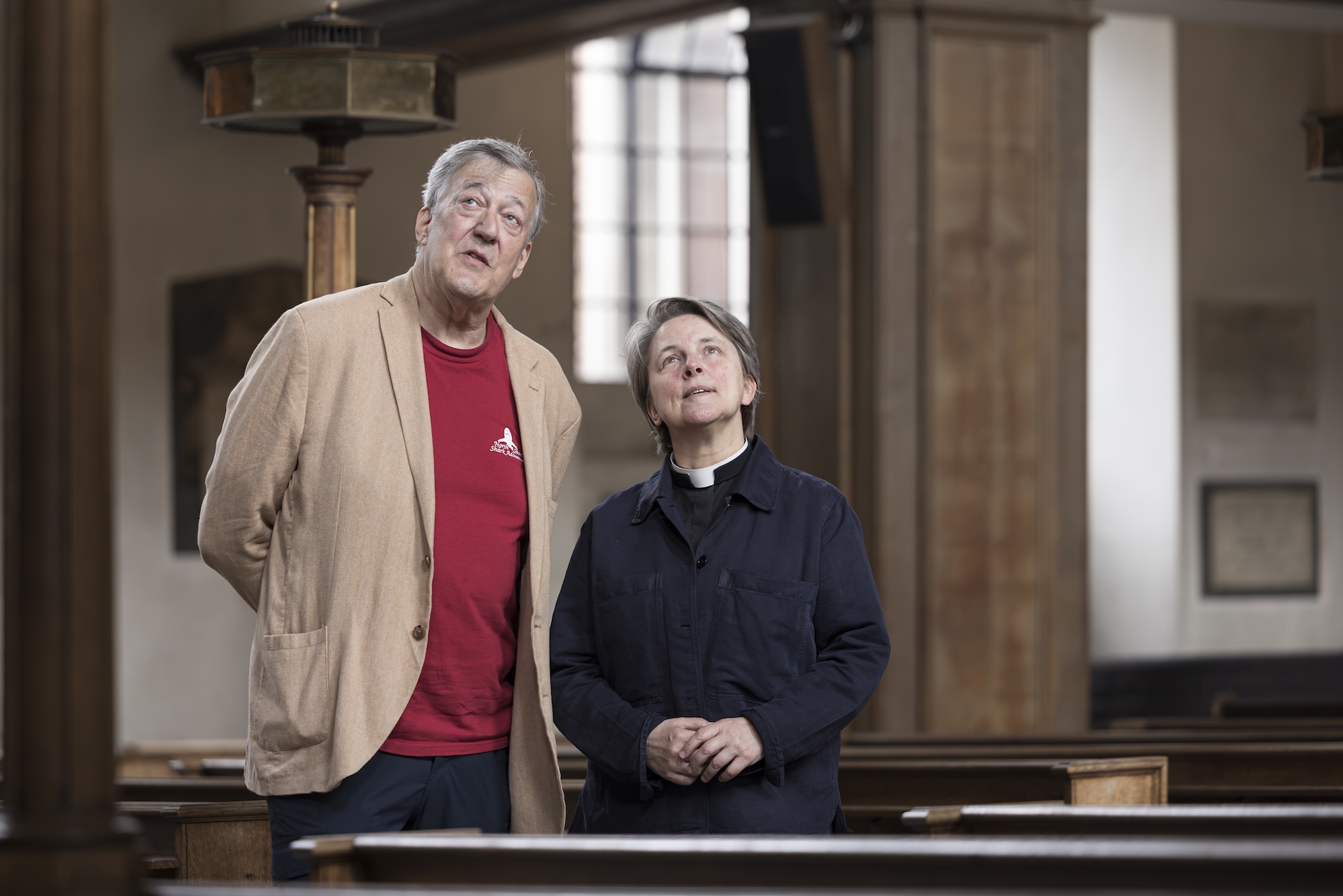
SF: It is an extraordinary thing that for all my lifetime, one of the cliché definitions of the Church of England was the Conservative Party at prayer. And exactly what's happening to the Conservative Party might be said to be happening to The Church of England.
LW: I’m really inspired by a former Rector of St. James's during the First World War, William Temple, who became the Archbishop of Canterbury. He was also instrumental in setting up the NHS with Clement Attlee after the Second World War. When he was at St. James's, he said that the Church is the only institution in society that exists for the benefit of the people who do not belong to it. That's the sort of institution I want to be part of.
Stephen, where do you get personal comfort and solace from as an atheist?
SF: Mostly literature, music, poetry and nature walks. And, I must confess, sport as well. You should have seen me the other week at the test match. And, of course, love and my family. I'm married and my mother, sister and brother are in Norfolk who I visit. I can see how these things can be compressed or expanded into an idea of God and nature – the way things are. I like that the Chaucerian word for nature is ‘kind’. Kind is cognate linguistically with kin and kinship so, in that rather very pagan, animistic way, I would say, ‘Kind’ is where I get my nourishment from.
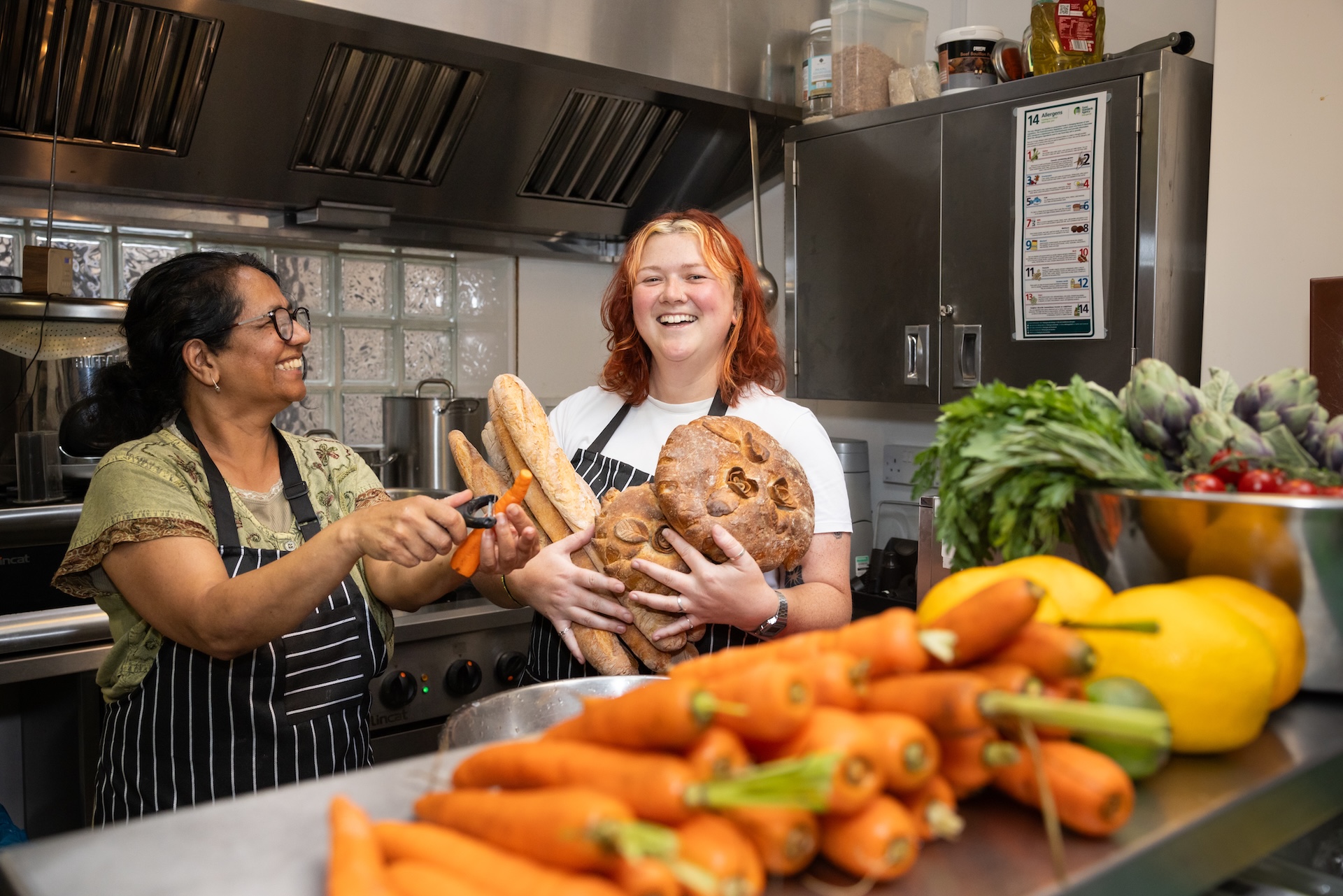
And Lucy, what can people draw from St. James’s?
LW: Our counselling project in the garden is an extraordinary and far-sighted project that's been there for 40 years. It's a shepherd's hut and you can drop in for an hour's free therapy, whoever you are, seven days a week. People come from the hedge funds on Jermyn Street, or if they're going through homelessness, or they're an out-of-work artist, actor or creative. We help accompany a lot of people through the asylum system, which is very gruelling and difficult. Most are refugees from African countries where to be gay is illegal. It is about putting together sexuality and faith, and being able to do that in a Church context is something unique.
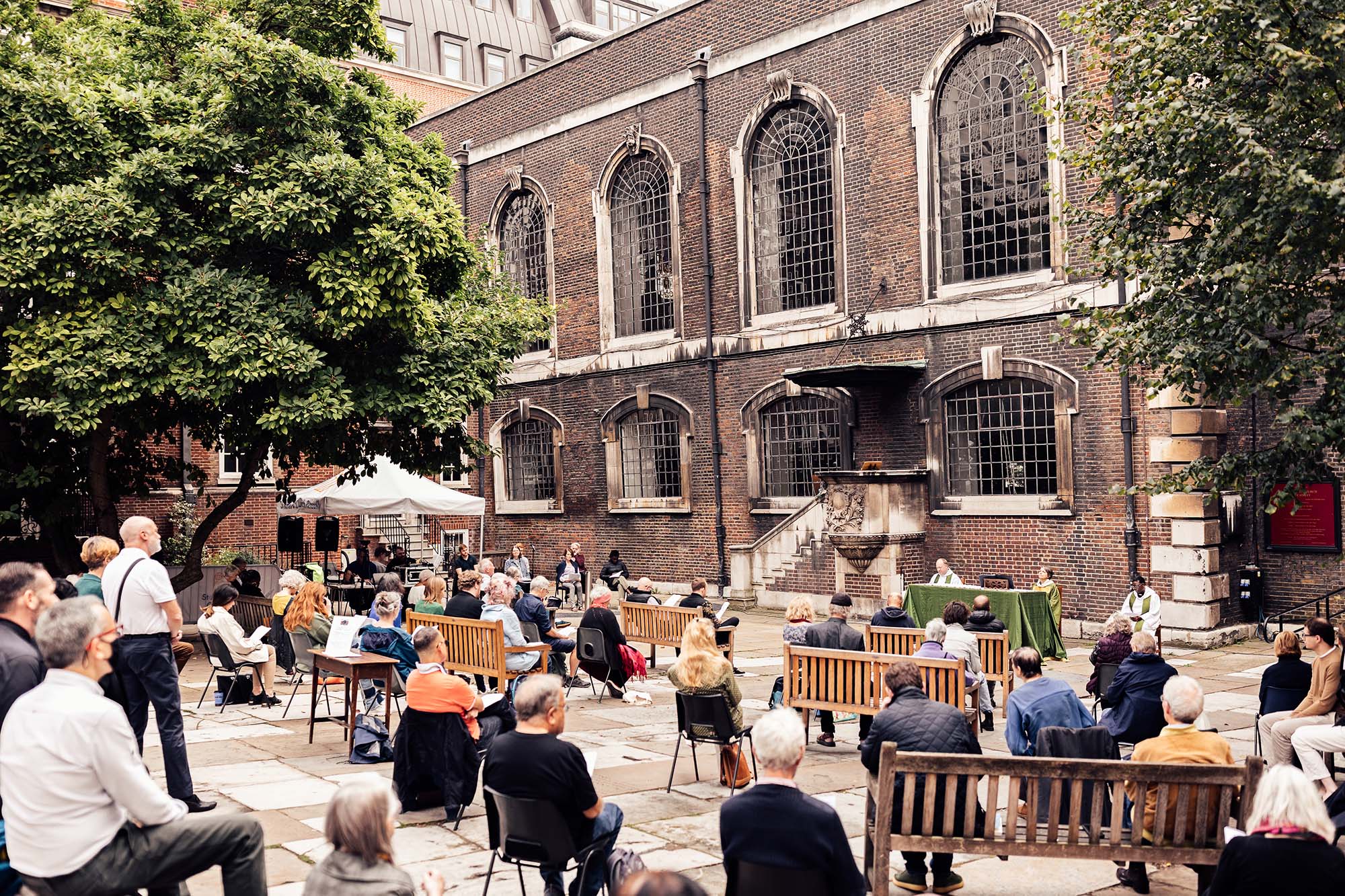
And there is a big capital project at St James’s?
LW: The Wren Project, which I describe as a catalyst, is not to restore and shut but to make beautiful and open. The first transformation is physical, restoring the historic church building and opening up to the south and to the east. It will change the way that people move around the area and the beautiful green space that we have, which is our church garden. We have a set of church buildings that suited it in 1954, but since then the world has completely changed. We don't have the facilities to do the work that we are doing, and we want to ensure that this church can serve its community for the next 150 years, not just for the next five years.
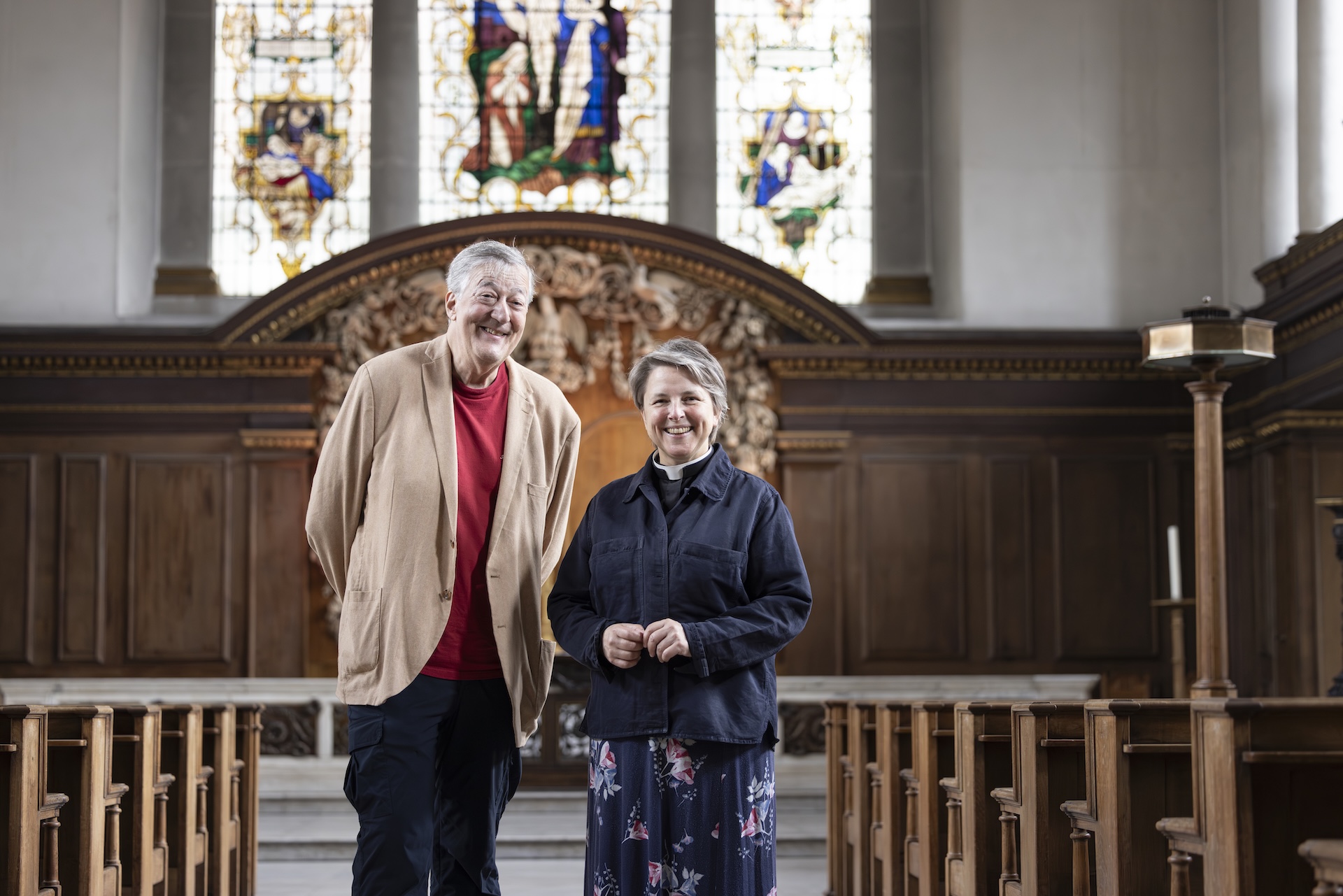
And some of the local businesses have been involved at St. James's?
LW: Yes, companies like D.R Harris have been quite involved. They created a fragrance, St James’s 1684, that was really fantastic. I smelled it!
So you are a nose as well as a Canon?
LW: They never train you for these things.
SF: On leaving you, I shall remind you of the wonderful lyrics of the song ‘Just You Wait’, that Eliza Doolittle sings in My Fair Lady. ‘One day I'll be famous, I'll be proper and prim. Go to St. James's so often, I will call it St. Jim.’
Help give a gift of hope this season by making a donation to the St James’s ‘Christmas for All’ Appeal 2025. Visit sjp.org.uk/christmas/
